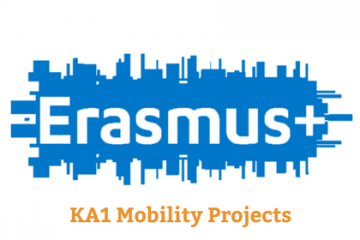Key Action 1 – Mobility of Individuals, within the European program Erasmus+ supports the following activities:

- Mobility of learners and staff: opportunities for students, trainees and young people, as well as for professors, teachers, trainers, youth workers, staff of education institutions and civil society organisations to undertake a learning and/or professional experience in another country;
- Erasmus Mundus Joint Master Degrees: high-level integrated international study programmes delivered by consortia of higher education institutions that award full degree scholarships to the best master students worldwide;
As regards students, trainees, apprentices and young people, the mobility activities supported under this Key Action are meant to produce the following outcomes:
- improved learning performance;
- enhanced employability and improved career prospects;
- increased sense of initiative and entrepreneurship;
- increased self-empowerment and self-esteem;
- improved foreign language competences;
- enhanced intercultural awareness;
- more active participation in society;
- better awareness of the European project and the EU values;
- increased motivation for taking part in future (formal/non-formal) education or training after the mobility period abroad.
As regards staff, youth workers and professionals involved in education, training and youth, the mobility activities are expected to produce the following outcomes:
- improved competences, linked to their professional profiles;
- broader understanding of practices, policies and systems in education, training or youth work across countries;
- increased capacity to trigger changes in terms of modernisation and international opening within their educational organisations;
- greater understanding of interconnections between formal and non-formal education, vocational training and the labour market respectively;
- better quality of their work and activities in favour of students, trainees, apprentices, pupils, adult learners, young people and volunteers;
- greater understanding and responsiveness to social, linguistic and cultural diversity;
- increased ability to address the needs of the disadvantaged;
- increased support for and promotion of mobility activities for learners;
- increased opportunities for professional and career development;
- improved foreign language competences;
- increased motivation and satisfaction in their daily work.